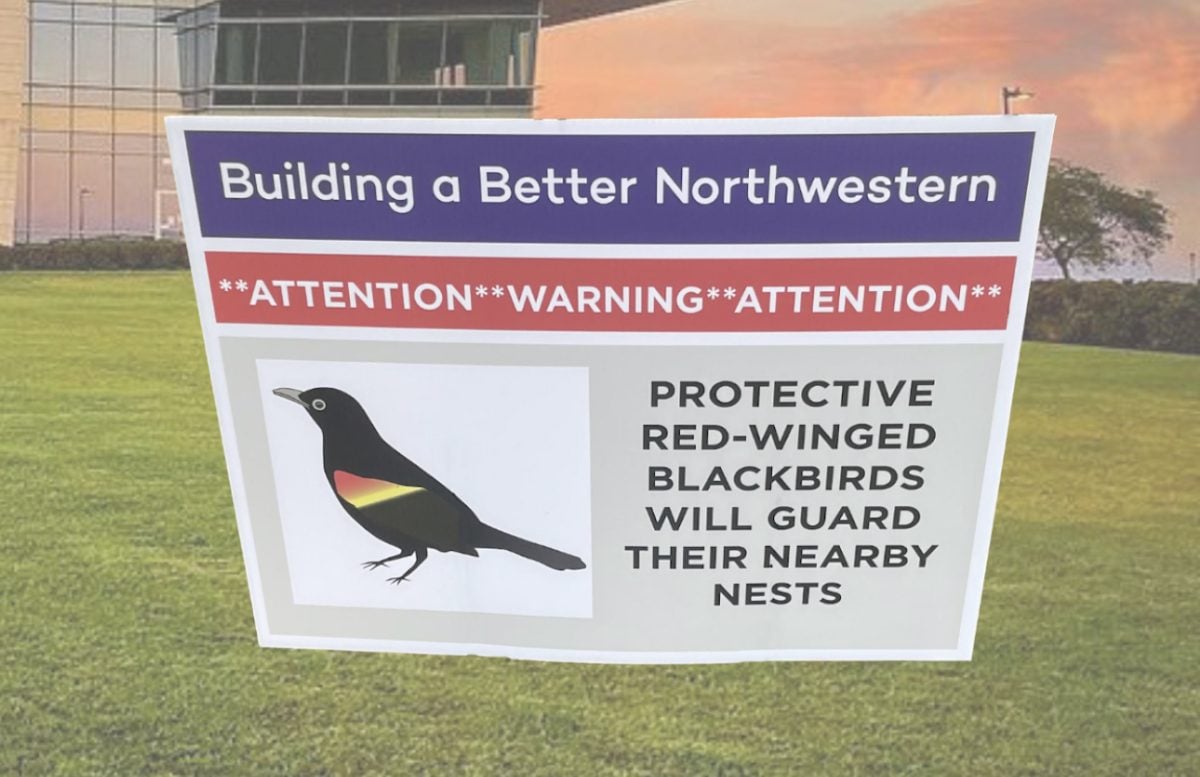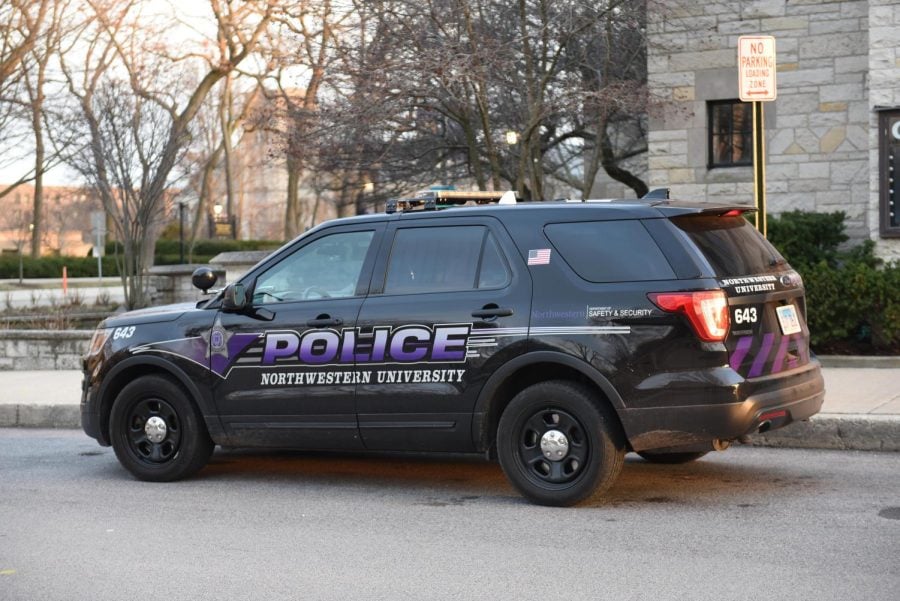When Lauren Levinson, now a Weinberg sophomore, was applying to college, she was faced with the task all other high school seniors are: the Common Application essay. Levinson knew just the topic for her essay, which she wanted to serve as a metaphor for greater things in her life: her fear of birds.
After being accepted into NU, she was faced with an unexpected reality. This summer, Levinson is training for a marathon. And while on a recovery run down the Lakefill with a friend in May, Lauren felt something suddenly land on the back of her head.
After a brief moment, she realized there were feet in her hair. She started screaming and swatting the top of her head as she realized her fears had been actualized: A bird had just attacked her.
She got the bird off, and terrified yet appreciative of the irony in the situation, Lauren turned to her friend, who remarked that she had been attacked in the same exact location.
It is not just the two of them. Red-winged blackbirds have been terrorizing unsuspecting walkers at the Lakefill throughout the spring and summer, swooping down on them, squawking in their ears and flying into their hair.
Male blackbirds attack anything that poses a threat, said Annette Prince, the director of Chicago Bird Collision Monitors.
“They’ll go after horses. They’ll go after dogs. They’ll go after people,” Prince said.
The attacks are a yearly annoyance for summertime students and NU visitors. The Red-winged blackbirds arrive in the Chicago area from the southern U.S. in the early spring for mating season, according to Prince. The birds then build their nests in weedy, marshy areas, where the female sits and protects her young.
Those nests are usually the reason for the bird attacks, as the birds sometimes perceive humans as threats to their nests.
“They are trying to drive away anything that looks big, whether that be a larger bird, human being or some kind of mammal that could be potentially coming into the grasses where they have their nests built,” Prince said.
While the birds’ attacks do not typically cause a lot of physical harm, they’ve pestered many near the lakefront.
“They’ll poke whatever they’re going after if they’re close enough,” Prince said.
Still, the birds can be a terrifying sight.
Joseph Vadnai said he was relaxing at the Lakefill with his family when he was attacked by one of the birds. He was playing around in the bushes where, unbeknownst to him, one of the blackbirds had nested.
“I heard ‘whoosh, whoosh, whoosh,’ behind my head, and I turned around, and there was one flying after me,” he said.
Vadnai started running, and the bird chased him around the entire loop before he finally found shelter in a nearby building. Vadnai said he was terrified and has since resorted to staying as far from the birds as he can.
Others find the birds to be more annoying than scary. Bienen and Weinberg junior Ismael Pérez has been attacked in the head three times on campus.
The birds have nested right outside the exit to one of his lecture halls. He has been instructed by the school to be cognizant of the birds, but he often forgets, leaving him a prime target for the birds.
“It always hits you in the head,” he said. “Everyone just always says the curse word that they’re most used to.”
Perez said he now steers away from the birds the best he can and suggests they be put in a sanctuary.
There’s little recourse for annoyed pedestrians, however. The birds are simply protecting their young, according to Prince.
Prince’s best advice for citizens bothered by the birds is to wait it out, as the birds normally stop attacking around the end of July, when nesting season is over. For those truly terrified of the birds, Prince suggests carrying an umbrella to protect your head in locations where attacks are common.
“They’re just gonna bounce off the umbrella,” Price said. ”It’s gonna leave you a little protected.”
Dov Elul was a student in the Medill-Northwestern Journalism Institute this summer.






















